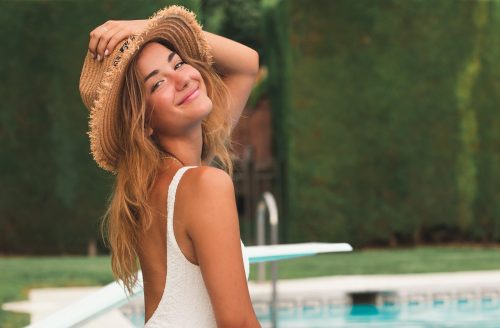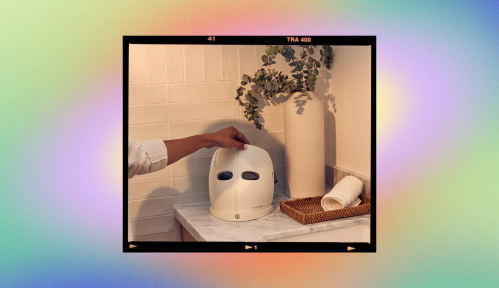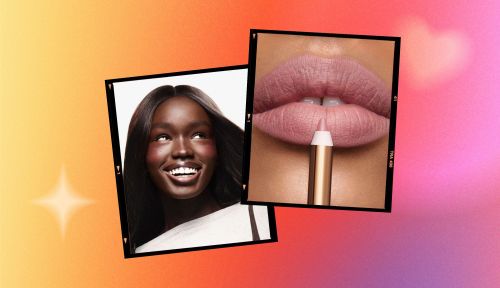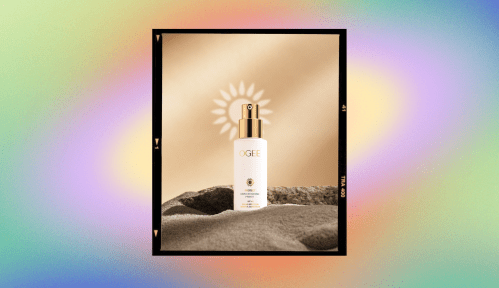Our editors independently select these products. Making a purchase through our links may earn Well+Good a commission
8 of the Best Dandruff Shampoos for Color Treated Hair, According to Hairstylists and Derms
Derms and hairstylists weigh in on the best dandruff shampoo for color-treated hair that will fight flakes without stripping your dye job.
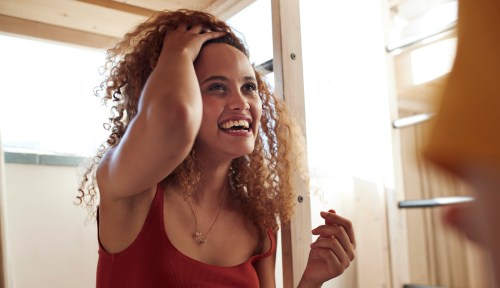
A lot of dandruff shampoos on the market are great for ridding your scalp of flakes. What they’re not so great for, though, is ensuring that your most recent dye job stays intact. Which is why you’re better off with a dandruff shampoo for color treated hair. According to Annie Gonzalez, MD, a board-certified dermatologist in Miami, many of these products are formulated with sulfates and antifungal chemicals that will strip your color, which is why you’ll want to suss out one of the best dandruff shampoos for color-treated hair to make sure you aren’t creating a new problem in pursuit of solving another.
Experts in This Article
founder of Jupiter
board-certified dermatologist at Riverchase Dermatology in Miami
celebrity hairstylist
celebrity hairstylist and Biolage ambassador
“The wrong dandruff shampoo on color-treated hair can slowly lift hair dye and cause it to fade,” says Dr. Gonzalez. “Therefore, when looking to treat your dandruff while having dyed hair, you need to make sure you’re using a product that is clarifying your scalp, while also being color-safe.”
With that in mind, we chatted with pros to determine how, exactly, to deal with dandruff on color-treated hair. Read on for what you need to know.
Ingredients to avoid in a dandruff shampoo for color-treated hair
“It’s important to be mindful of harsh, stripping ingredients when choosing a shampoo for color-treated hair,” says Sunnie Brook, a celebrity hairstylist and Biolage ambassador. “Using the wrong dandruff shampoo can be stripping to your recent hair color or gloss and even damage the hair in some cases.” So when looking for the right product, the first (and most important) thing you’ll want to pay attention to is what it’s formulated without.
According to pros, there are a few color-stripping culprits you’ll want to stay away from. First up? Sulfates. Though they may be helpful in whisking away dirt and oil, Dr. Gonzalez notes that they can be too harsh on the scalp, and ultimately strip dye away from your strands. “This is a really big one that I would 100 percent want to avoid,” says David Lopez, a celebrity hairstylist. “There’s already a medical-grade ingredient in the shampoo that’s helping to combat dandruff, so you don’t want to add a really strong detergent on top of that—your hair doesn’t need it.”
It’s also a good idea to avoid parabens, alcohol, and sodium chloride. “Parabens and alcohol are preservatives in hair products but can remove all the essential oils your hair needs to avoid getting dry and frizzy,” says Dr. Gonzalez. “Sodium chloride is usually used to make the shampoo thicker but can irritate the scalp and contribute to color fading.”
A few other items on the “no-go” list: selenium sulfide, coal tar, and piroctone olamine, because they “can cause discoloration or even stain the hair in some cases,” says Brooks.
“Bottom line: Pay close attention to the ingredients in your dandruff shampoo (and all hair-care products) to ensure your color treatments are protected,” says Alexa Adler, founder of Jupiter, a hair-care brand. “Using a dandruff shampoo that isn’t formulated to be color-safe could result in your color treatment fading, stripping, or depending on the shade, turning brassy.”
What to look for in a dandruff shampoo for color-treated hair
Though there are certainly a lot of things you’ll want to stay away from, that doesn’t mean it’s impossible to find a color-safe dandruff shampoo that actually works. “Use a dandruff shampoo formulated with pyrithione zinc as the active ingredient,” says Adler. “It’s a safe and effective treatment for the underlying causes of dandruff, and is the best way to fight flakes, redness, and itching.”
Because the combination of hair dye and anti-fungal ingredients tend to leave your scalp and strands dry, though, you’ll want to look for a formula that pairs its active ingredient with nourishing ones. “Look for natural ingredients like colloidal oatmeal, squalane, and coconut oil that will protect your scalp’s natural moisture barrier and keep your hair shiny and smooth,” says Adler. Pros also name aloe vera, calendula, biotin, ketoconazole, and vitamin E as solid ingredient-list additions, and according to Dr. Gonzalez, essential oils for dandruff (like lavender, spearmint, and tea tree oil) “can help relieve the scalp while maintaining the hair’s shine.”
How to use a dandruff shampoo on color-treated hair
Even the right dandruff-fighting formula can be harsh on color-treated hair (or any hair, for that matter), and pros have a few tips for best practices. “You can alternate between a color-safe shampoo and a dandruff shampoo to hold the color as much as possible,” says Dr. Gonzalez. “Then, follow up with a scalp and hair leave-in treatment to ensure the flakes don’t return.”
If you’re experiencing a lot of dryness after using dandruff shampoo, Brooks recommends applying a hair mask before you get into the shower, and leaving it on as you shampoo. This, she says, will help to protect your color during your wash.
The best dandruff shampoo for color-treated hair
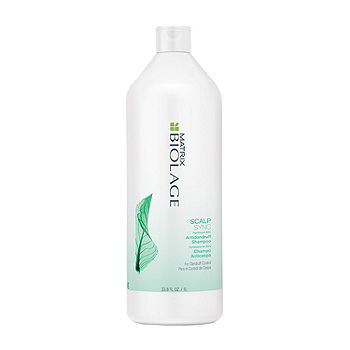
Biolage ScalpSync Anti-Dandruff Shampoo
“Biolage ScalpSync uses a combination of pyrithione zinc and mint leaf in lieu of harsh chemicals, and is safe for hair that’s been color-treated or chemically processed,” says Brooks. The mint leaves have antibacterial and calming properties, and helps to relieve scalp irritation after use.
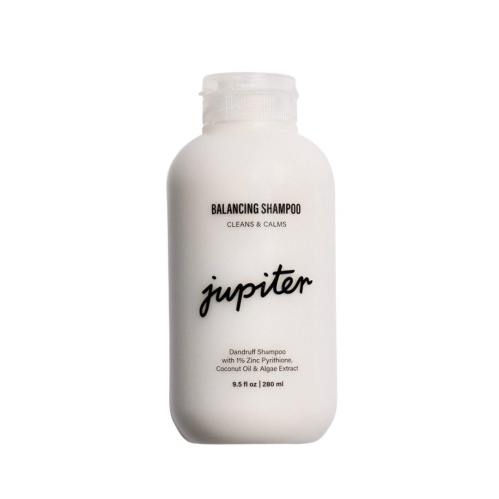
Jupiter Balancing Shampoo — $23.00
Jupiter’s entire line was designed to fight dandruff while keeping color-treated hair intact. “We scientifically formulated our shampoo to treat dandruff without the risk of stripping or damaging color treatments and chemical treatments like keratin,” says Adler. The brand’s products are free of sulfates, parabens, and phthalates (which is what makes them dye-job friendly), and in addition to de-flaking your scalp, the shampoo can also reduce hair breakage up to 30 percent.
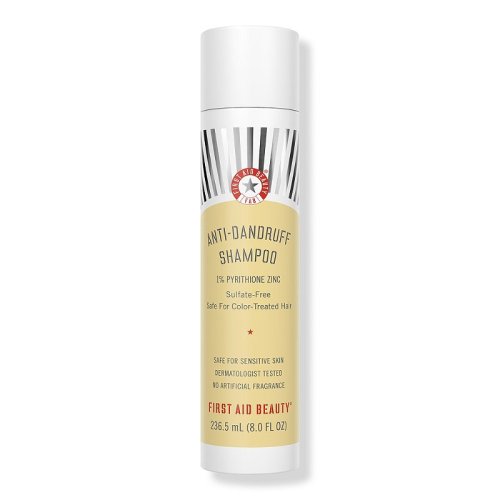
First Aid Beauty Anti-Dandruff Shampoo with 1% Pyrithione Zinc — $30.00
Lopez recommends this dandruff shampoo for everyone, regardless of whether or not they color their hair. “First Aid Beauty’s anti-dandruff shampoo is awesome—it has no artificial fragrance, no mineral oil, no parabens, and it’s sulfate-free, which is fantastic because that’s really the main culprit of color fading,” he says. “There are no harsh detergents, and on top of that, it works to actually eliminate flakes.”
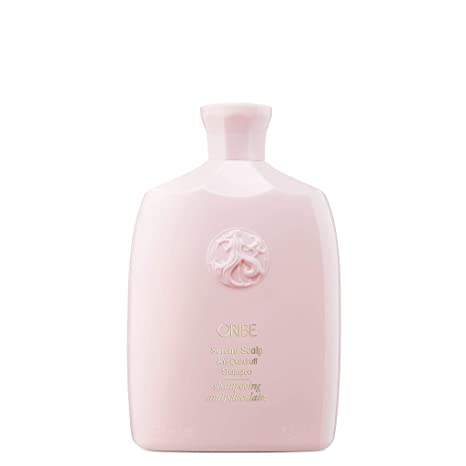
Oribe Serene Scalp Anti-Dandruff Shampoo — $46.00
This color-safe shampoo from Oribé makes fighting dandruff feel like a luxury experience. It lists salicylic acid as its active ingredient, which works to chemically exfoliate the scalp to help stop flakes from forming. It’s free of all of the ingredients pros recommend staying away from, and is made with bilberry fruit and sugar maple extracts, which soothe and hydrate the scalp while also offering antioxidant protection.
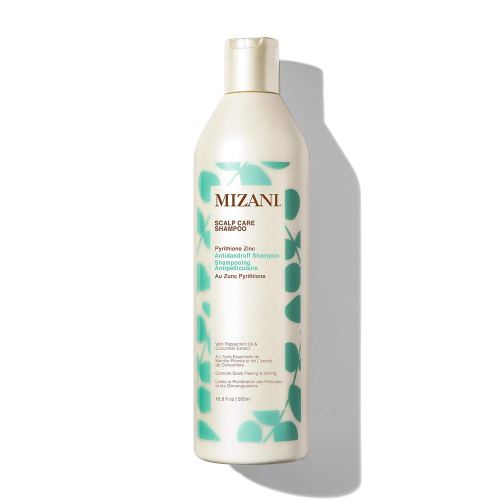
MIZANI Scalp Care Pyrithione Zinc Antidandruff Shampoo — $24.00
Designed with curly and coily hair types top of mind, this formula pairs pyrithione zinc with menthol, peppermint, and cucumber extract. With this combination, it removes flakes (and whatever other residue is hanging out on your scalp), combats itching, and soothes skin irritation in a single lather and rinse.
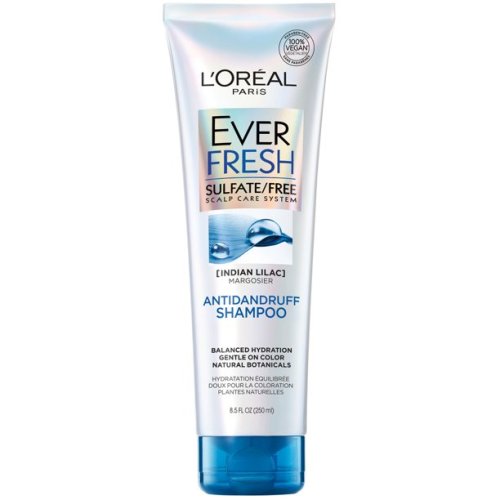
L'Oreal Paris EverFresh Antidandruff Shampoo Sulfate Free — $17.00
As part of L’Oréal’s line of sulfate-free shampoos, this stuff will give your scalp a deep clean without messing with your dye job. It’s got stylist-fave pyrithione zinc (formulated at a 1 percent concentration, which is exactly the amount you need for it to actually work), and is clinically tested to get rid of flakes and itching—aka the two most annoying side effects of dandruff.
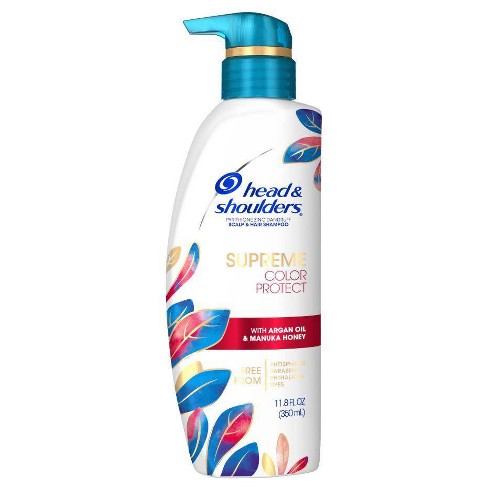
Head and Shoulders Supreme Color Protect — $9.00
No list of “best” dandruff shampoos would be complete without an appearance from Head and Shoulders, long considered to be the GOAT flake-fighting drugstore brand. This $9 shampoo pairs pyrithione zinc with deep moisture technology and manuka honey to leave your scalp and strands nourished and clear.
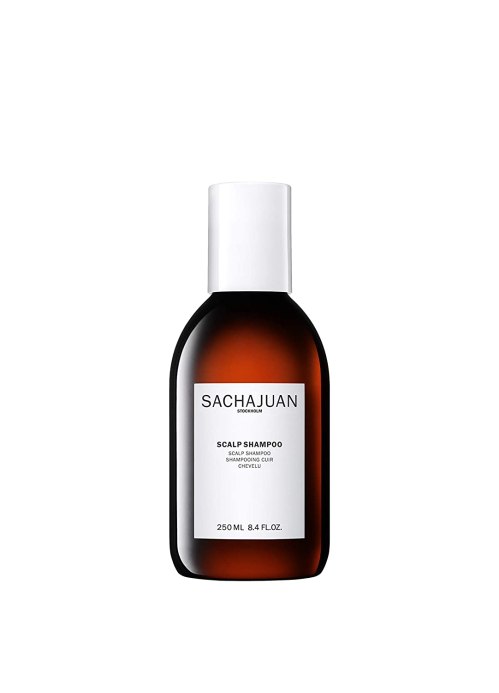
Sachajuan Scalp Shampoo — $28.00
This formula uses a blend of alpha- and beta-hydroxy acid to chemically exfoliate the scalp, which helps get rid of dead skin cells and regulate the oil production that leads to dandruff. It pairs these ingredients with rosemary oil, menthol, and ginger extract, which help to maintain your scalp’s moisture balance so that it doesn’t dry out in the process.
For more intel on dealing with dandruff, straight from a derm, check out the video below.
Sign up for the Well+Good SHOP Newsletter
Get exclusive deals on wellness, beauty, fitness, and food products that have been hand-picked by our editors.
Got it, you've been added to our email list.
